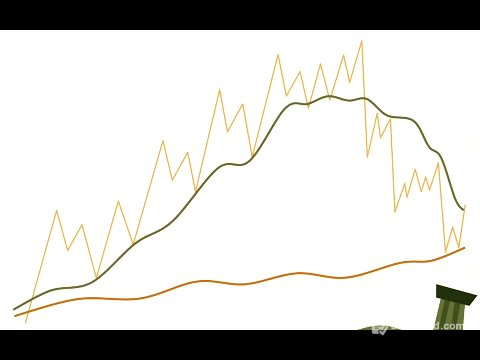TLDR;
This session explores the Greco-Roman period, emphasizing Greek and Roman literature. It covers the Homer-Hero period, the Classical Greek and Roman periods, and the Patriotic (Hellenistic) period. Key topics include Homer's epics, the influence of Greek writers like Plato and Aristotle, and the adoption of Greek techniques by Roman writers. The lecture also touches on the influence of these classical periods on English literature, including the adoption of epic styles and themes.
- The Greco-Roman period is divided into the Homer-Hero period, the Classical Greek and Roman periods, and the Patriotic (Hellenistic) period.
- Homer's epics, the Iliad and the Odyssey, are central to understanding the Homer-Hero period and its influence on later literature.
- Classical Greek writers like Plato and Aristotle contributed significantly to philosophy, drama, and literary theory.
- Roman writers adopted and adapted Greek techniques, influencing the development of English literature.
- Understanding the Greco-Roman period is essential for students of English literature due to its lasting impact on literary themes, styles, and forms.
Introduction [0:33]
The session begins with a welcome and a quick check of the audio and video quality. The host encourages viewers to subscribe to the channel and download the Literature Lovers App for access to courses. The main topic is introduced as the Greco-Roman period, with a promise of extra information and a reminder of its importance for English literature students.
Homer and Hero Period [3:51]
The lecture focuses on the Homer and Hero period, named after Homer, the writer of the Iliad and the Odyssey. This period is considered the Golden Age for literature and art in Greek history. Much of the literature from this time was oral, with Homer being a notable exception. The Iliad is based on the Trojan War, while the Odyssey recounts the adventures of Odysseus. Homer, a Greek poet and blind bard, lived around the 12th to 8th century BC. His works introduced elements like epic similes, which were later adopted by English writers such as Milton.
Homer's Influence and Epic Similes [6:26]
The discussion centers around Homer's influence on English literature, particularly the adoption of epic similes. Epic similes are extended comparisons, exemplified by the comparison of Satan's body to Leviathan in Milton's Paradise Lost. The Iliad is based on the Trojan War, and the Odyssey is based on the adventures of Julius. James Joyce also wrote a novel of Julius. The poem is by Alfred Lord Tennis. The novel is by James Joyce.
The Iliad and the Odyssey [11:54]
The lecture provides a brief overview of the stories in the Iliad and the Odyssey. The Iliad, an epic in 24 books, centers on the Trojan War and features characters like Agamemnon, Achilles, and Helen. The Odyssey recounts the adventures of Odysseus. The poems from the classical period are composed in dactylic hexameter. The battle of Elliot took place between Troy and Aeas.
Classical Greek Period [20:13]
The classical Greek period is explored, highlighting writers like Aesop, known for moral fables, and Plato, who wrote Republic. Plato argued that poets should be banned from an ideal state, criticizing Homer's Iliad for portraying characters like Achilles as war mongers. Socrates, Plato's guru, was an expert in rhetoric. Plato was the founder of the Academy. Aristotle, Plato's disciple, countered Plato's views in his work Poetics, arguing that poetry purifies emotions. Aeschylus, Euripides, and Sophocles were great tragedians of this period.
Aristotle and Tragedy [25:39]
The discussion focuses on Aristotle's Poetics and his views on tragedy. Aristotle defined tragedy as an imitation of a serious and complete action that evokes pity and fear, leading to catharsis. He disagreed with Plato's view that poetry corrupts morally, arguing instead that it provides proper reflection and purification of emotions. Aeschylus is known as the father of tragedy.
Classical Roman Period [28:01]
The lecture transitions to the classical Roman period, noting that Roman writers adopted many techniques from the Greeks after Rome conquered Greece in 146 CE. Playwrights like Plautus and Terence, and poets like Ovid, contributed significantly to Roman literature. Ovid wrote Metamorphoses. Virgil's Aeneid tells the story after the Trojan War, focusing on Aeneas and the establishment of the Roman Empire. Quintilian's Institute Oratoria was also influential.
Patriotic Period [32:11]
The Patriotic period, marked by the spread of Christianity, is discussed. St. Augustine's Confessions is considered the first autobiography. The lecture also mentions Hesiod, who compiled Greek mythology in his work Theogony. Sappho was known for lyric poetry. Pindar originated the Pindaric ode, which consists of strophe, antistrophe, and epode.
Key Works and Writers [37:41]
The session reviews key works and writers from the Greco-Roman period. Aesop's fables, Plato's Republic, and Aristotle's Poetics are highlighted. Aeschylus is famous for his work Rustia Trilogy. Sophocles is known for his works named Dip Rex and Dip the King. Aristophanes is associated with old comedy. Herodotus is known as the father of history. Horace's Art Poetica influenced Alexander Pope's Essay on Criticism. Plutarch's Lives served as inspiration for William Shakespeare's Roman plays. Seneca's revenge tragedy pattern was adopted by English playwrights.
Roman Influence on English Literature [51:39]
The lecture emphasizes the influence of Greek and Roman literature on English literature. English writers adopted techniques and themes from both Greek and Roman sources. The English also adopted French. England was kept under the Romans. The influence found in the literature of England is of the Romans.
Conclusion and Movie Recommendation [54:30]
In conclusion, the host summarizes the key points of the lecture and recommends watching the movie "Troy" for a better understanding of the Iliad and the Trojan War. Viewers are encouraged to subscribe and stay tuned for future classes, which will cover the Old English Period and the Anglo-Saxon Period.









